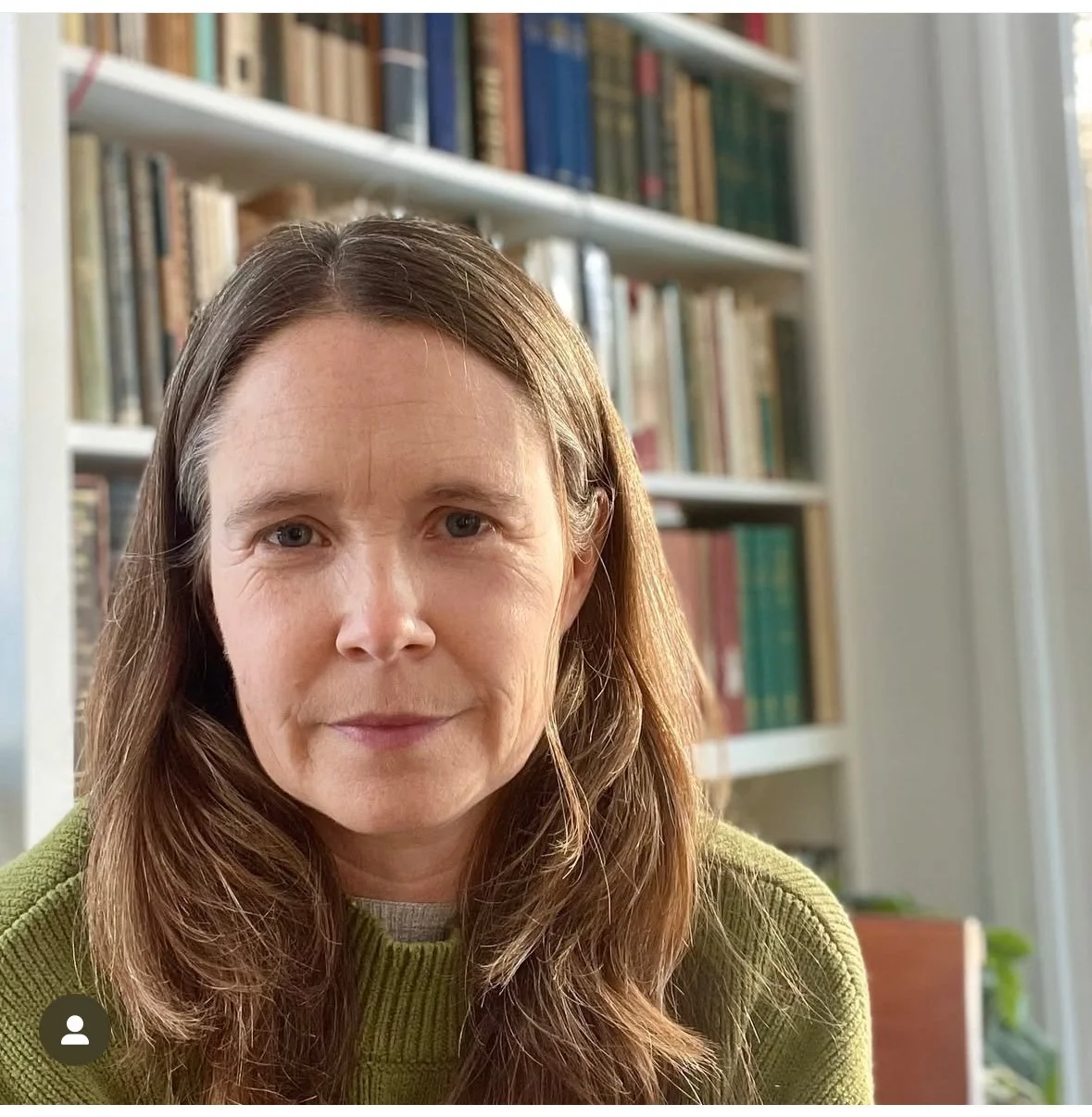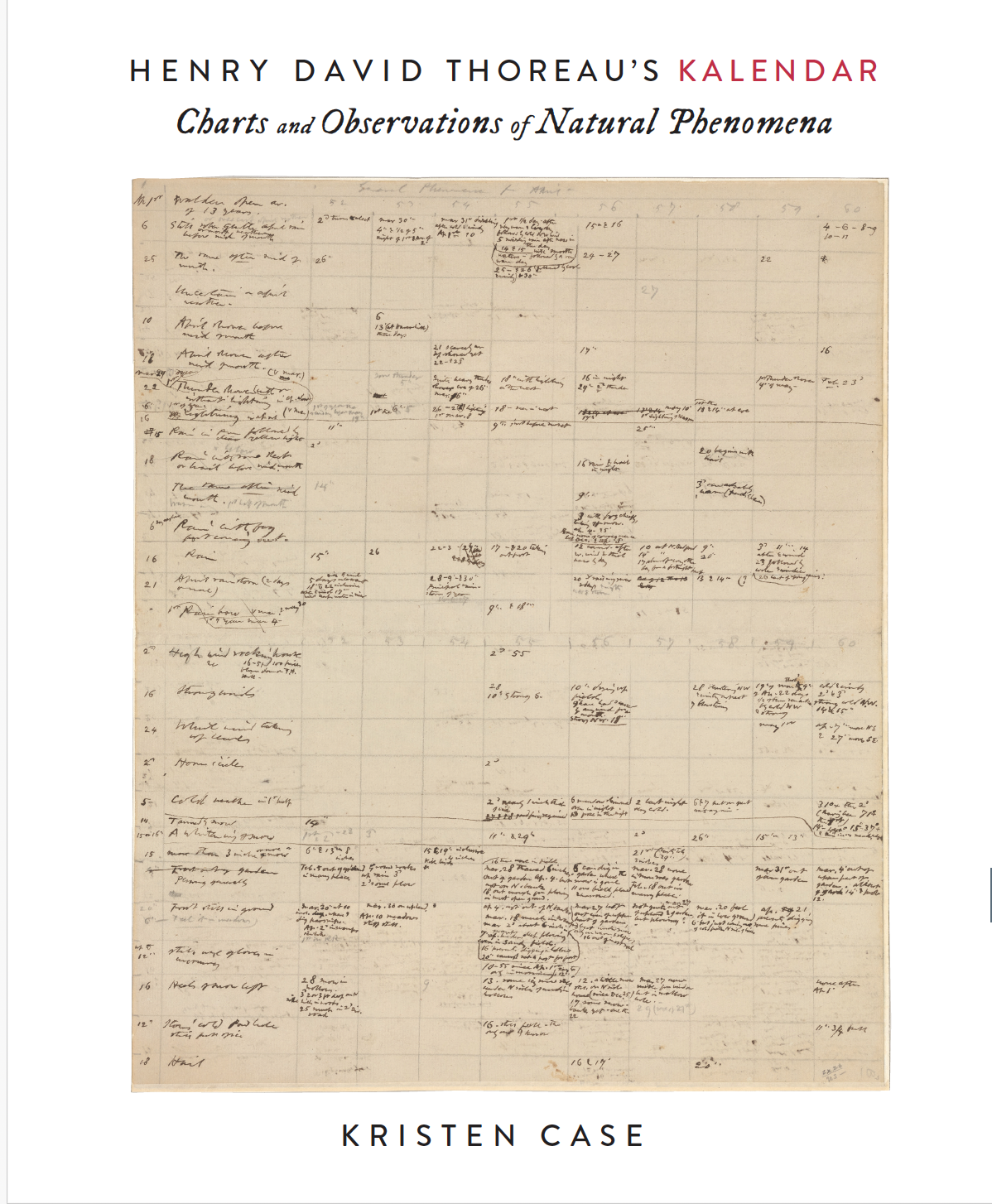The Thoreau Society presents
Kristen case
Kristen Case is a poet and scholar. In addition to Thoreau's Kalendar, she is the author of American Pragmatism and Poetic Practice: Crosscurrents from Emerson to Susan Howe and three books of poetry, most recently, Daphne. She lives in Maine.
For more information, please visit https://www.kristencase.com/
Gossamer Days:
The Poetics of Thoreau's Last Seasons
Friday, October 24
7:00 PM
Concord Free Public Library
129 Main St., Concord
Join author Kristen Case for a reading and conversation drawn from her new book, Henry David Thoreau’s Kalendar (Milkweed Editions), an exploration of Thoreau's final work. Focusing on the chapter “Gossamer Days,” Case reflects on Thoreau’s return to his seasonal charts in the final months of his life, when illness confined him to his house on Main Street. Drawing on the journals, weather observations, river measurements, and natural phenomena he had painstakingly recorded for over a decade, Thoreau constructed a new kind of relationship to the living world—one sustained by memory, pattern, and reflection. Case traces how October’s gossamer threads—visible only in slant sunlight—became for Thoreau metaphors of interconnectedness, resilience, and the strange abundance of the year's turning.
“For years Thoreau’s stunning late-life charts of natural phenomena have seemed impossible to read—until now. It took Kristen Case, with a scholar’s eye and a poet’s heart, to reveal these baffling works as nothing less than the culmination of Thoreau’s life-long artistry, in which all that seemed lost to the past can live again in the unfolding of the present. Henry David Thoreau’s Kalendar invites us to reimagine our lives in keeping with Thoreau—and with Case, herself a literary artist whose illuminations deserve to be lived with and reflected on, hand in hand with Thoreau’s—across the turning of time.”
“At his death in 1862, Henry David Thoreau left behind a rich seedbed of unfinished projects. Now, Kristen Case, an amazingly perceptive scholar, has sketched for us the promised fruit of one of these. Thoreau’s Kalendar, a years-long charting of ‘natural phenomena’ in Concord, Massachusetts, pointed the way toward an ecology of time in which the mind and moods of the naturalist are rightly joined to the plants and animals whose seasons Thoreau had so faithfully recorded. This book is a major contribution, not just to Thoreau scholarship but to everyone from ecologists and climate scientists to historians and philosophers of time.”






